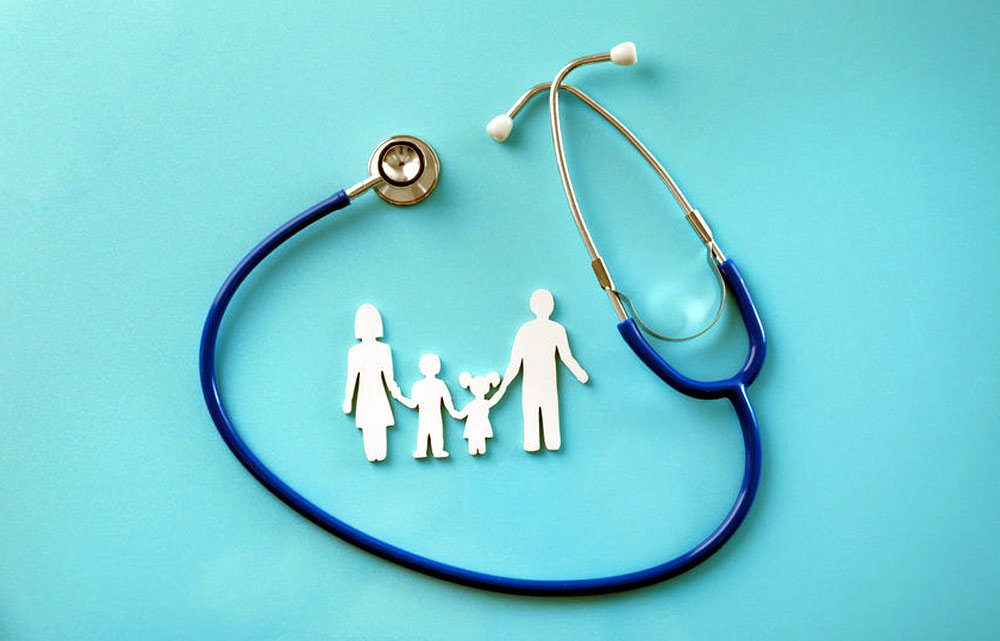Introduction to Health Insurance and Car Accidents
Health insurance plays a significant role in covering medical expenses arising from various unforeseen events, one of which includes car accidents. In California, car accidents can lead to significant medical costs, prompting many individuals to inquire whether their health insurance policy will cover the expenses resulting from such incidents. Understanding the relationship between health insurance and car accidents is crucial for anyone who drives or rides in a vehicle.
When a person sustains injuries in a car accident, they often seek immediate medical attention. This is where health insurance comes into play. A policyholder may wonder, does health insurance cover car accidents in California? Generally, health insurance plans are designed to provide coverage for necessary medical treatment, which may include hospital stays, surgeries, rehabilitation, and other associated healthcare services following an accident. However, it is essential to understand that the specific coverage details can vary from one insurer to another, and certain policies may have exclusions.
In California, drivers are required to have liability insurance, which addresses damages to other parties involved in an accident. However, it does not cover the medical expenses of the insured driver. This distinction is important to consider, as individuals might rely on their health insurance to help cover medical costs when they encounter a car accident. Policyholders should review their health insurance terms and conditions thoroughly to ascertain what is included and if any restrictions apply.
Moreover, factors such as the nature of the accident, who is at fault, and the types of coverage available can also influence whether health insurance will effectively cover medical expenses. As such, individuals should be well-informed about their options and understand how health insurance functions in the context of car accidents. This knowledge will assist them in navigating the complexities of insurance claims should they find themselves in an unfortunate situation.
Types of Health Insurance in California
In California, residents have access to a variety of health insurance plans, which can play a crucial role in covering medical expenses that result from car accidents. Understanding the different types of health insurance available is essential for determining how claims related to vehicular incidents may be managed and what coverage is entailed.
One of the most common forms of health insurance in California is private insurance, offered by various insurance providers. These plans can vary significantly in terms of premiums, copayments, and coverage levels. Depending on the specific policy, private insurance might cover a wide range of medical expenses, including emergency room visits, hospital stays, and therapy, which are often incurred due to car accidents. However, it’s important for policyholders to review their contracts carefully to understand what is specifically included in their coverage.
Another critical type of health insurance is Medicaid, known as Medi-Cal in California. This program is designed to assist individuals and families with low incomes, offering extensive health coverage that generally includes medical expenses related to car accidents. Medi-Cal aims to provide comprehensive care, but eligibility requirements vary, and certain conditions apply that may affect coverage. It is advisable for potential beneficiaries to consult with Medi-Cal representatives to ascertain what services are covered concerning automobile accidents.
Lastly, Medicare serves California residents aged 65 and older, as well as certain younger individuals with disabilities. While Medicare primarily covers expensive hospital stays and outpatient care, it can also cover medical expenses resulting from car accidents. However, since Medicare has specific stipulations regarding coverage and may require beneficiaries to contribute their own cost-sharing amounts, individuals should evaluate their Medicare plans to fully understand the potential implications of a car accident.
By exploring these variations of health insurance in California, individuals can better navigate medical coverage in the aftermath of a car accident and are better equipped to handle the financial implications of such incidents.
What to Expect After a Car Accident
Experiencing a car accident can be a traumatic event, and knowing the immediate steps to take is essential for ensuring your well-being and understanding your health insurance coverage. First and foremost, the priority after any auto accident should be to seek medical attention. Even if injuries appear minor, it is advisable to obtain a thorough medical evaluation, as some injuries may not manifest symptoms immediately. A timely medical assessment is crucial, as it creates a formal record that may be relevant when determining whether health insurance will cover expenses associated with car accidents in California.
Once medical needs are addressed, the next step is to gather information related to the accident. This includes exchanging details with involved parties and documenting the scene as thoroughly as possible. Taking pictures, collecting witness statements, and compiling police reports can all play a pivotal role in supporting further claims regarding your health insurance coverage. It’s important to understand that many health insurance policies include specific stipulations about coverage for car accidents, which may differ significantly based on the insurer.
Familiarizing yourself with your health insurance policy is also vital. Policyholders should carefully review their coverage documents to identify limitations or exclusions that apply to injuries sustained in automobile accidents. Some plans may have clauses that dictate how medical expenses from a car accident are reimbursed, or whether they will cover treatments and therapies as part of the recovery process. Being aware of these details, particularly in the context of California laws surrounding car accidents and medical insurance, is essential for managing your expectations about potential coverage. By staying informed and acting promptly, you can facilitate a more structured approach to handling both your health needs and insurance claims.
How Health Insurance May Cover Car Accident-Related Expenses
Health insurance can play a significant role in mitigating expenses resulting from car accidents in California. When a person involved in a vehicular collision requires medical attention, various aspects of their health insurance plan may come into effect. Generally, health insurance covers a wide range of medical services that could be necessary after an accident, including hospital stays, emergency room visits, surgeries, and rehabilitation services.
Hospital stays are crucial after serious accidents. Health insurance may cover the costs associated with a patient’s admission to a hospital, including daily room charges, nursing care, and any necessary diagnostic tests. Emergency room visits are typically covered as well, which includes initial evaluations, treatments, and any required imaging studies such as X-rays or CT scans. Furthermore, if surgical intervention is necessary, health insurance usually extends its coverage to surgeries performed in the hospital, provided they are deemed medically necessary.
In addition to immediate care, rehabilitation services such as physical therapy or occupational therapy can be covered by health insurance when prescribed by a physician. These services are vital for recovery, especially in cases where injuries require extended treatment to regain full mobility and function. It is important to review specific health insurance policies, as the extent of coverage can vary widely.
While health insurance provides substantial benefits, factors such as deductibles, co-pays, and out-of-pocket limits may affect the overall coverage. Deductibles are the amounts policyholders must pay before their insurance kicks in, and understanding this can help manage out-of-pocket expenses following a car accident. Co-pays are fixed costs that are due upfront for specific services, which can also add to the total expenses incurred. Therefore, exploring the individual health insurance policy details is crucial to determine the extent of coverage for car accident-related medical expenses, including any limitations or conditions that may apply.
Limitations and Exclusions in Coverage
When examining whether health insurance covers car accidents in California, it is essential to understand the limitations and exclusions that may apply. Health insurance policies frequently contain specific provisions that outline circumstances under which coverage may be denied. A primary instance where health insurance may decline to pay for a car accident is if the accident involved an uninsured motorist. In cases where the policyholder has been involved in a collision with a driver who lacks insurance, health insurance may not extend its benefits to cover medical expenses resulting from that incident.
Another significant exclusion pertains to scenarios involving alcohol or drug use. If an accident occurs while the policyholder is driving under the influence, health insurance providers often classify this as a high-risk situation, which can result in denial of claims. Insurance companies may perceive the act of operating a vehicle while impaired as a voluntary neglect of safety, leading to potential rejection of coverage for medical treatment related to injuries sustained in such accidents.
Additionally, there are situations where health insurance might offer limited coverage. For example, if medical expenses exceed a certain threshold due to car accident injuries, the health insurance policy may only cover a part of the costs while leaving the rest for the policyholder to shoulder. Furthermore, providers may also impose waiting periods or prerequisites for certain types of treatments, which could complicate the immediate care required after an accident.
These limitations necessitate that drivers in California carefully review their health insurance policies to ensure they are fully aware of what is covered in case of a car accident. Being informed about exclusions helps individuals understand their rights and options when seeking medical attention after an incident. Understanding these aspects is crucial for navigating the complexities surrounding auto accidents and health insurance coverage.
Coordination of Benefits in Auto Accident Claims
In the aftermath of a car accident in California, individuals often find themselves grappling with the complexities of insurance coverage. A key component of this process is understanding the concept of coordination of benefits. This term refers to the way in which health insurance and auto insurance policies interact when addressing medical expenses resulting from an accident. Essentially, coordination of benefits ensures that neither insurance pays more than the total amount of incurred medical expenses.
In California, if a policyholder is involved in a car accident, both their auto insurance and health insurance may come into play. Typically, auto insurance policies include personal injury protection (PIP) or medical payments coverage (MedPay), which specifically addresses medical expenses resulting from the accident. These coverages can help pay for immediate medical bills, hospital stays, and ongoing treatment. On the other hand, health insurance can also cover these costs, but it is crucial to understand how these two types of coverage work together to avoid potential financial pitfalls.
When filing a claim, the primary concern for policyholders should be understanding which policy will act as the primary payer for medical expenses. In most cases, auto insurance is deemed primary, meaning it will cover medical costs first before any other insurance kicks in. It is essential for individuals to inform their health insurance provider about the accident and any claims they are filing with their auto insurance. This transparency is vital, as it allows the health insurance company to coordinate payments appropriately and avoid disputes over coverage responsibilities.
Policyholders should remain proactive throughout the claims process, ensuring that they understand their coverage limits and the specific terms of their policies. By effectively navigating the coordination of benefits, individuals can alleviate the financial burden of medical expenses resulting from car accidents in California. Striking a balance between auto and health insurance coverage can facilitate a smoother recovery process following an unexpected event.
Legal Implications and Liability Considerations
In California, the legal landscape surrounding car accidents is complex and significantly impacts health insurance coverage. The state operates under a “fault” system for car accidents, wherein the party found to be negligent is liable for damages incurred by the other party. This determination of fault has critical implications for health insurance claims, as it can directly influence whether an individual can recover costs associated with medical treatment arising from an accident.
When an accident occurs, determining who is at fault involves analyzing the circumstances leading to the collision. California law requires that evidence of negligence, such as traffic violations or reckless driving behavior, must be established. If a driver is found negligent, they may be held liable for medical expenses, property damage, and other associated costs. In this context, health insurance coverage becomes essential, as it may initially cover medical expenses, but may seek reimbursement from the at-fault party’s liability insurance or through subrogation in some cases.
The interplay between health insurance and liability insurance complicates the claims process. If an injured party utilizes their health insurance for treatment related to a car accident, there might be restrictions based on the terms of their policy. Insurers may require notification of a third-party claim against the person at fault, potentially limiting the scope of coverage for those expenses that may subsequently be recouped through other insurance avenues. Understanding these legal implications is therefore crucial for individuals seeking medical care after a car accident in California.
Furthermore, existing liability laws also dictate that the injured party must take certain steps to secure their claims. This includes providing necessary documentation and cooperating with insurance companies. Knowing how health insurance interacts with claims of negligence and liability can assist individuals in navigating their coverage options effectively.
The Importance of Reviewing Your Health Insurance Policy
Health insurance coverage is a fundamental component of managing your financial risks, especially in the event of a car accident. In California, the layers of health insurance can often lead to questions regarding what is covered, particularly in the unfortunate scenario of an auto collision. Therefore, it is crucial for policyholders to thoroughly review their health insurance policies to ascertain the extent of their coverage when it comes to car accidents.
When examining a policy, individuals should prioritize understanding the scope of medical benefits provided. Focus on sections that detail outpatient and inpatient care, as these can significantly impact your treatment options and financial obligations following an accident. Additionally, it’s important to look for any specific clauses or exclusions pertaining to car accidents. Some policies may have stipulations that limit coverage based on the nature of the accident or whether another party is at fault.
Asking the right questions can ensure clarity in your coverage. For instance, inquire whether your health insurance covers ambulance rides, emergency room visits, and follow-up treatments stemming from a car accident. Moreover, understanding the coordination of benefits, especially if you possess both health and auto insurance, can elucidate the role each policy plays in your overall coverage. Policies may differ in how they handle claims arising from automobile incidents, which can affect out-of-pocket costs and reimbursements.
Furthermore, it is essential to review the deductible amounts and co-payment responsibilities linked to various services in the context of car accident injuries. By taking the time to carefully review and understand your health insurance policy, you can be better prepared to answer the crucial question: does health insurance cover car accidents in California? This proactive approach not only safeguards your health but also shields you from unexpected financial burdens.
Conclusion and Key Takeaways
Understanding whether health insurance covers car accidents in California is crucial for individuals seeking medical coverage in the aftermath of an accident. Throughout the discussion, we have highlighted that while health insurance generally provides coverage for medical expenses incurred as a result of accidents, there are notable variations in policies that depend on the specific insurance provider and the terms of the coverage. Therefore, it is vital for policyholders to closely examine their insurance agreements to comprehend the extent of their benefits.
Moreover, we have discussed the importance of supplemental insurance, which can help cover additional costs that health insurance may not address. This can be particularly beneficial in cases involving significant medical expenses, rehabilitation, or long-term care resulting from car accidents. Additionally, it is essential to establish whether the health insurance policy includes any deductibles or co-payments that might affect the overall costs borne by the insured following an accident.
As mentioned earlier, seeking care promptly after an accident is advisable. Timely medical intervention not only aids in recovery but also ensures that medical bills are addressed in accordance with the insurance policy. Any delays in seeking treatment, particularly if the injured party is seeking claims, could potentially affect their coverage outcomes. Thus, being proactive and informed is vital for anyone navigating the complexities of health insurance in relation to car accidents.
In conclusion, understanding the nuances of whether health insurance covers car accidents in California can significantly affect the financial and physical recovery journey post-accident. We encourage readers to familiarize themselves with their coverage options and stay informed about their health insurance policies to mitigate uncertainties following a car accident.
Read More:



